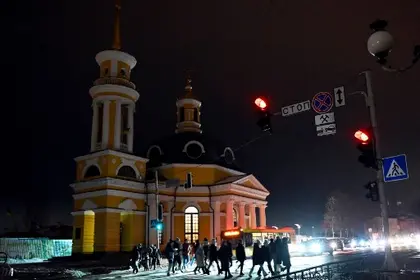A total blackout in Ukraine is highly unlikely as engineers have already developed solutions to keep it stable and running in the face of constant Russian attacks, the country’s energy minister has said.
JOIN US ON TELEGRAM
Follow our coverage of the war on the @Kyivpost_official.
German Galushchenko said that during three months of “systematic shelling,” technicians have successfully adapted to the challenge of keeping the power grid running, albeit in a reduced state.
“This applies to both generation and transmission of electricity,” the minister explained, adding: “I am confident that the system will hold in the future in the face of further possible strikes.”
Since Russia’s bombing campaign began and to ease the strain on the grid, national energy operator Ukrenergo has imposed controlled power cuts in the capital and elsewhere across the war-torn country, leaving many citizens without electricity for hours at a time on a daily basis.
And individual cities near front lines, such as Kherson and Kharkiv, have experienced city-wide blackouts at times.
So far fears of a country-wide blackout have yet to be realized but have bubbled away since Russia began its systematic bombing campaign against Ukraine’s energy infrastructure in October, periodically peaking during events such as when some of the country’s nuclear reactors on which it heavily relies were temporarily taken offline.

Zelensky: ‘Putin Fears Talks, Strong Leaders’ as Trump Pushes for Ukraine Deal
While Russia has so far failed to knock out Ukraine’s power grid as a whole, it can only currently run in a reduced state as it has sustained considerable damage.
The energy ministry said that due to significant damage to both the generation and power transmission systems, electricity supply restriction schedules will have to be applied until the end of the heating season in the spring.
"Our main goal is to make power outages planned and predictable, so that consumers clearly understand when electricity will be cut off and operators of distribution systems adhere to the power outage schedules," Galushchenko said.
You can also highlight the text and press Ctrl + Enter










